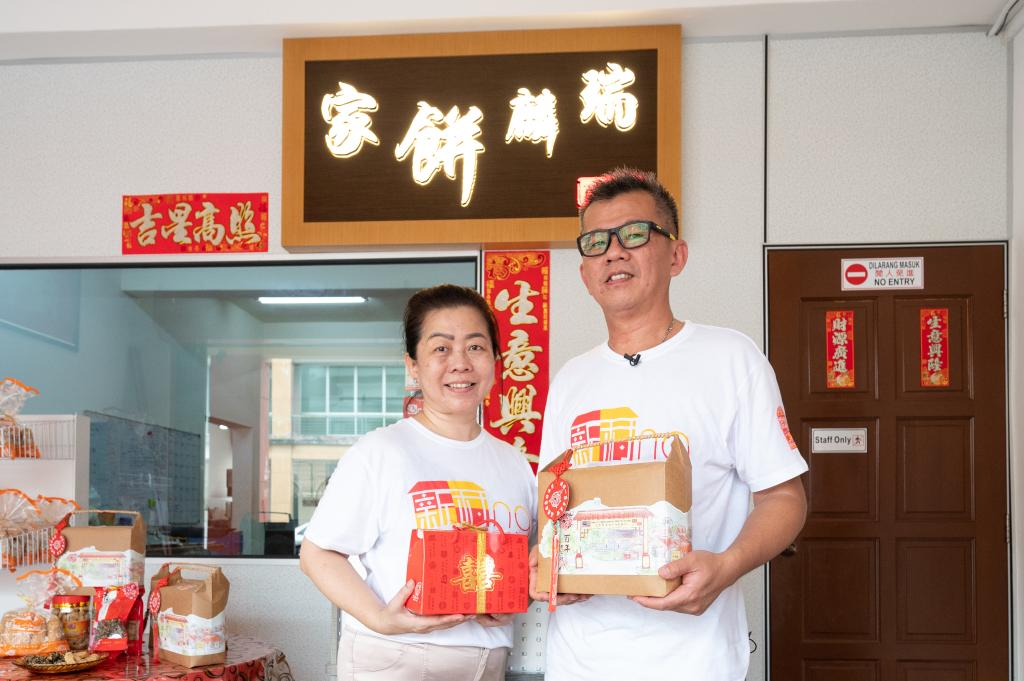
Oh Chee Keong (R) and his wife Loh Wai Yee pose for photos in front of their shop in Batang Kali, about 50km away from Kuala Lumpur city center, Malaysia, Jan. 24, 2022. (Xinhua/Zhu Wei)
KUALA LUMPUR, Feb. 11 (Xinhua) -- In a factory located at Batang Kali, about 50 km away from the Kuala Lumpur city center, Oh Chee Keong, 52, has been stirring the gooey maltose concoction incessantly until it becomes thick. It is just one of the complicated procedures in producing traditional confectioneries named "Mua Lao" and "Lao Huei".
This year, with a much relaxed COVID-19 Standard Operating Procedures (SOP) and joining the Taobao Chinese New Year sales, Oh's Swee Len Food Industries has received overwhelming orders for "Mua Lao" and "Lao Huei".
"Knowing that these traditional crackers obtained fervent support from the public with the great sales from Taobao, I am sincerely feeling grateful and happy for this," Oh told Xinhua, smiling while his hands were non-stop packing the freshly made "Mua Lao" into boxes.
Bazaars, flower farms, malls, and traditional morning markets, those are the usual places that Malaysians would definitely visit during the preparation for Chinese New Year celebrations. Walking into another new year celebrated in the shadow of the COVID-19 pandemic, the public has also turned to online platforms in shopping for Chinese New Year goods.
Spotting the surging trend of shopping online for Chinese New Year goods, Alibaba has then collaborated with the Selangor state government after noticing the positive response from the public on the recent "Baik Selangor 2021-2022" program, featuring a competition of traditional food products with the winners certified as Good New Village Products.
The selected Good New Village Products being marketed on Taobao have received overwhelming support, with a sell-out rate at 90 percent during the five days of the Chinese Lunar New Year.
Among the best sellers, "Mua Lao" and "Lao Huei" from Swee Len Food Industries started off as homemade traditional Hokkien wedding biscuits in Batang Kali New Village.
"Mua Lao" is a sesame coated cracker and "Lao Huei" a crispy rice coated cracker. The giving of these delicacies symbolizes a blessing of sweet and eternal love to the newlyweds.
The century-old "Mua Lao" and "Lao Huei" making business now managed by Oh and his wife still remains true to the handicraft tradition, striving to retain the authentic tastes of the traditional confectionery.
Under Oh's rebranding effort, these crackers have moved beyond wedding tradition and become an everyday snack.
"I wish everyone could have a taste of this nostalgic flavor whenever they feel like having it, marching into e-commerce is a way for us to preserve my grandfather's painstaking effort in the craft of this traditional confectionery," Oh said.
"There are still a lot of traditional delicacies and cultural handicrafts yet to be discovered in Malaysia," said Jess Lew, country manager for Alibaba's Tmall World Malaysia.
Jess believes the new technology and resources that Taobao owns to serve transnational e-commerce platform could assist the long-established local businesses to adapt to the digital time.
Ng Lay Tien, 39, the second generation for Samy Bak Kut Teh, told Xinhua that times have changed, businesses now have to race in the e-commerce boom.
"We have never thought of Bak Kut Teh as something that could be sold online. Even my dad, the founder of Samy who is now 64 years old agrees to the concept of e-commerce," said Lay Tien.
Bak Kut Teh is a savory fragrant dish with pork ribs cooked with a complex broth of herbs and spices for hours, and is often served with a bowl of shallot-scented rice. It is believed that the dish was invented by the early Chinese immigrants mostly from China's Fujian province, who largely settled in Klang, Malaysia.
Local traditional businesses, especially restaurants, were dampened dramatically amid waves of the coronavirus infections and multiple lockdowns in response last year.
Noticing the trend of self-heating instant hot pot could be a turning point for Samy to break through the dine-in limit, the third generation of Samy Bak Kut Teh, 24-year-old Ng Kian Yu has been working on a kind of convenient, instant self-heating Bak Kut Teh pot.
"Being marketed on Taobao has brought great attention to our self-heating Bak Kut Teh pot ... people no longer have to dine in at Klang, but they now could still enjoy the authentic dish whenever and wherever they wish to," said Kian Yu.
"We hope to see traditional and cultural merchandises thrive in e-commerce, and through this raise awareness among the youth of the importance and preciousness of cultural heritage," said Jess Lew. ■
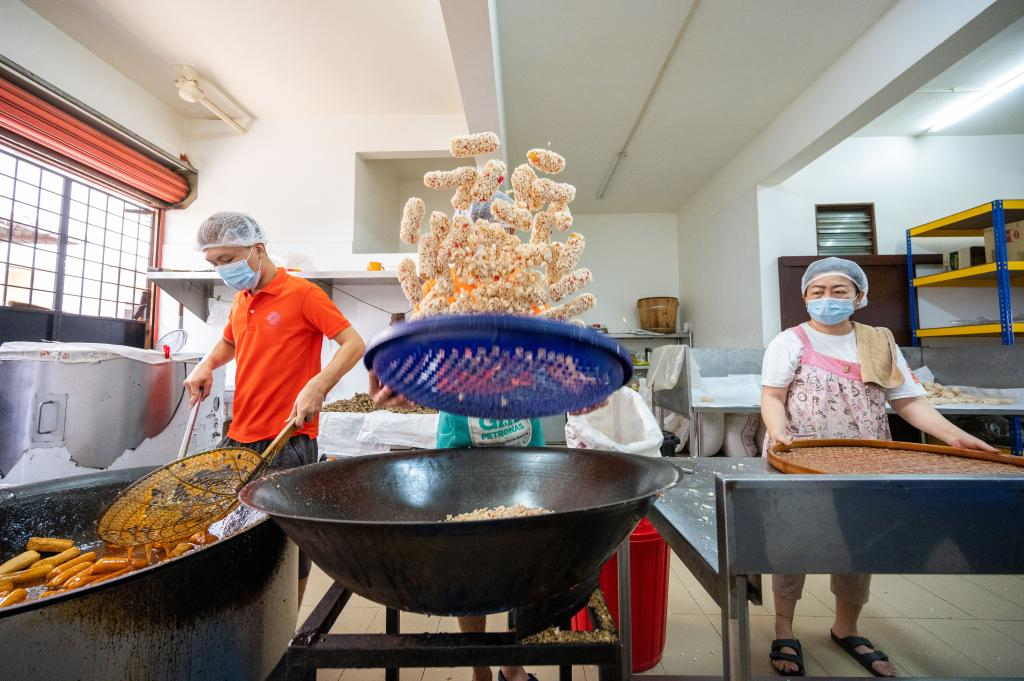
Oh Chee Keong's wife Loh Wai Yee (R) and workers make traditional confectionery named "Lao Huei" at Swee Len Food Industries in Batang Kali, about 50km away from Kuala Lumpur city center, Malaysia, Jan. 24, 2022. (Xinhua/Zhu Wei)
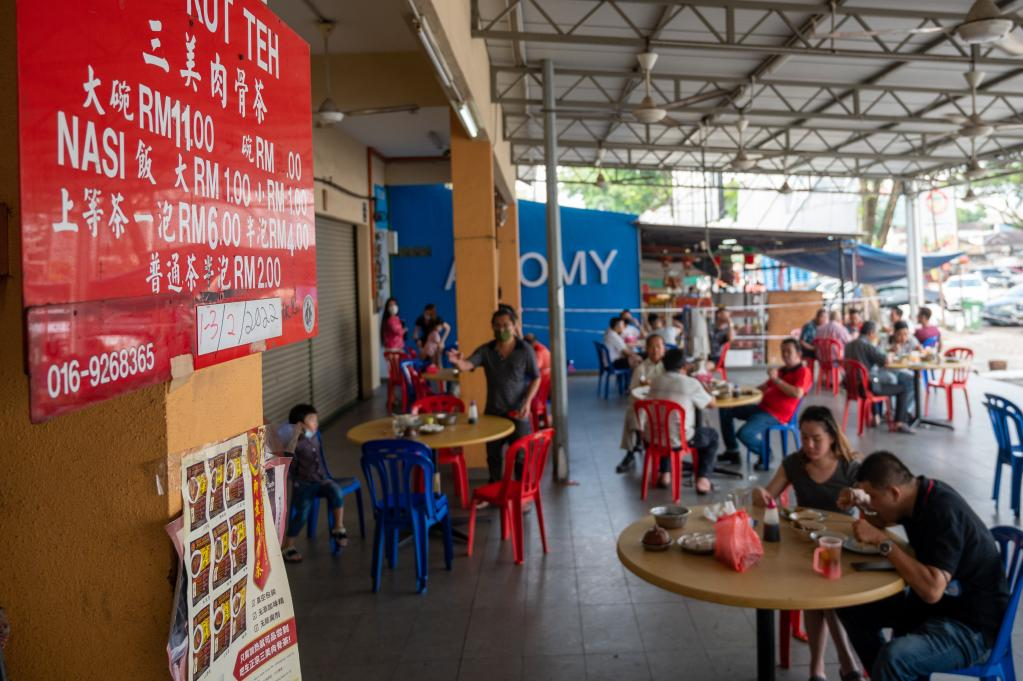
Customers enjoy Bak Kut Teh at Samy Bak Kut Teh restaurant in Pandamaran New Village in Klang, Malaysia, Jan. 25, 2022. (Xinhua/Zhu Wei)
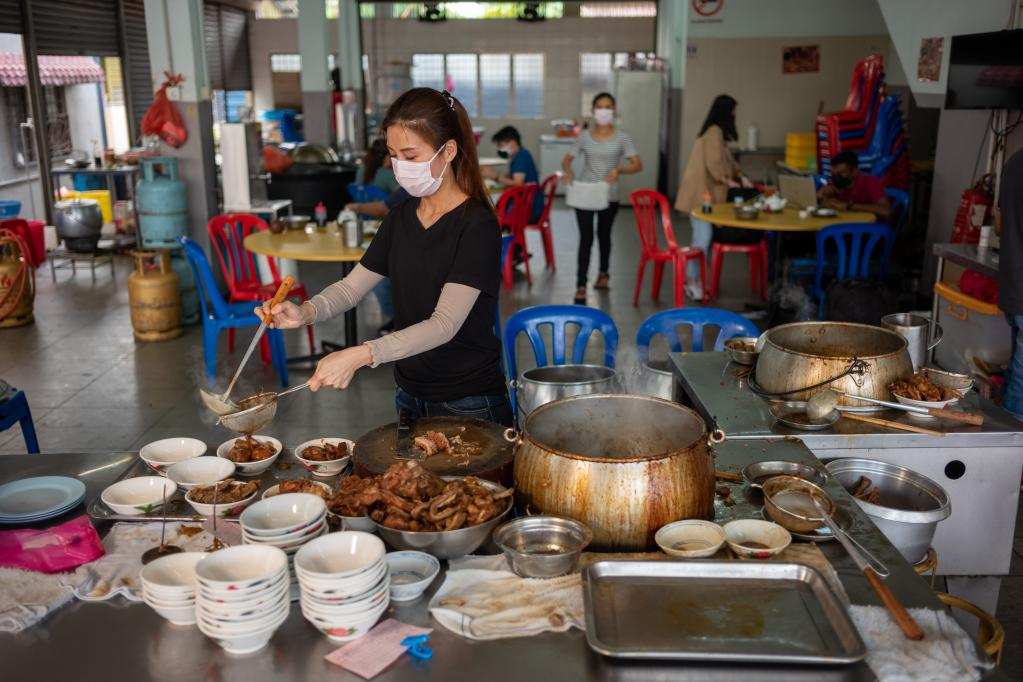
Ng Lay Tien prepares Bak Kut Teh at Samy Bak Kut Teh restaurant in Pandamaran New Village in Klang, Malaysia, Jan. 25, 2022. (Xinhua/Zhu Wei)
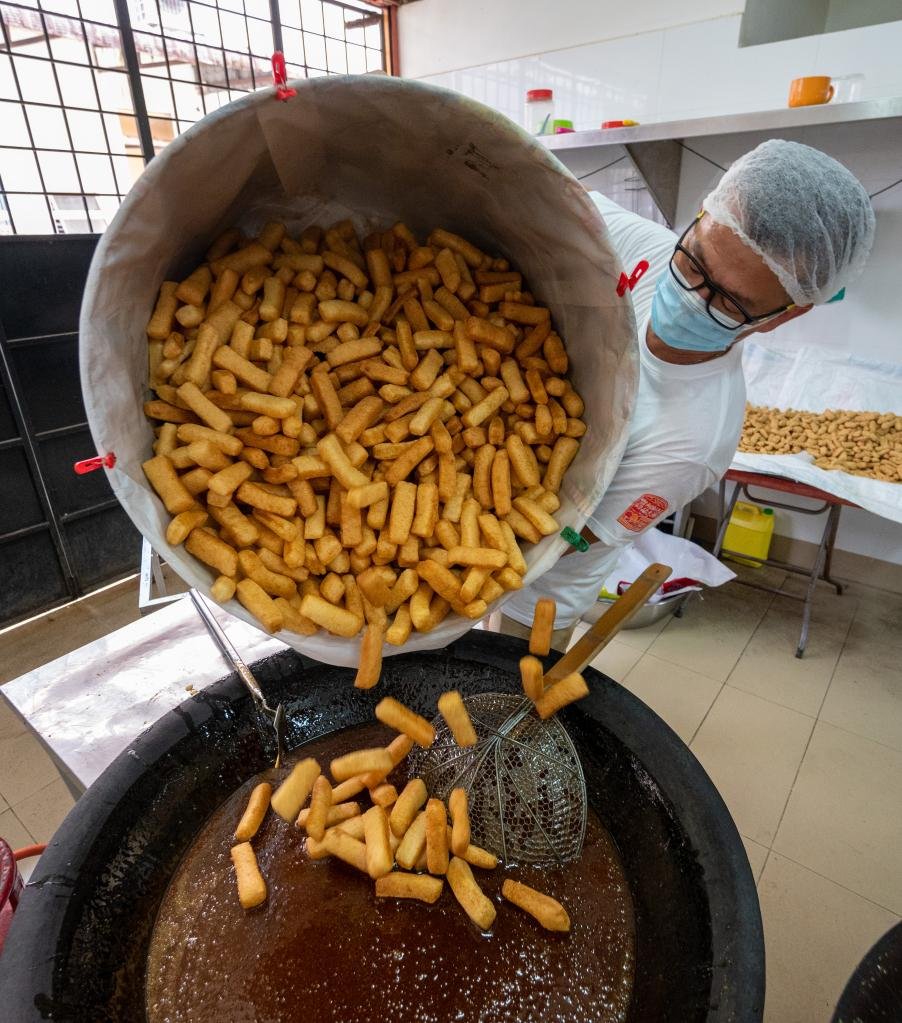
Oh Chee Keong makes traditional confectionery named "Mua Lao" at Swee Len Food Industries in Batang Kali, about 50km away from Kuala Lumpur city center, Malaysia, Jan. 24, 2022. (Xinhua/Zhu Wei)



